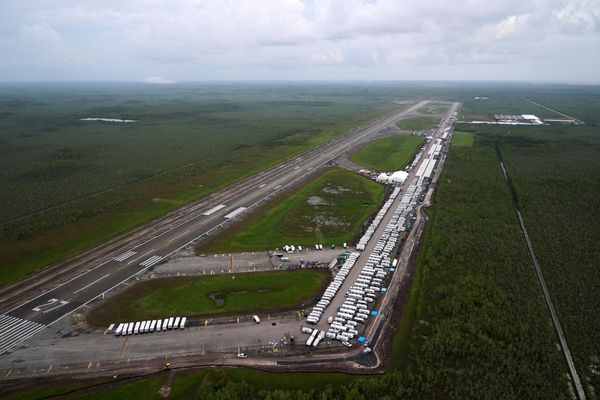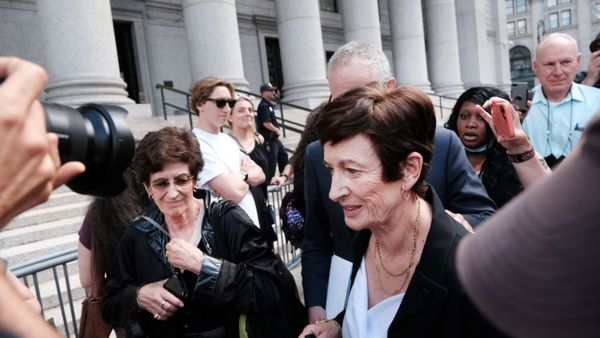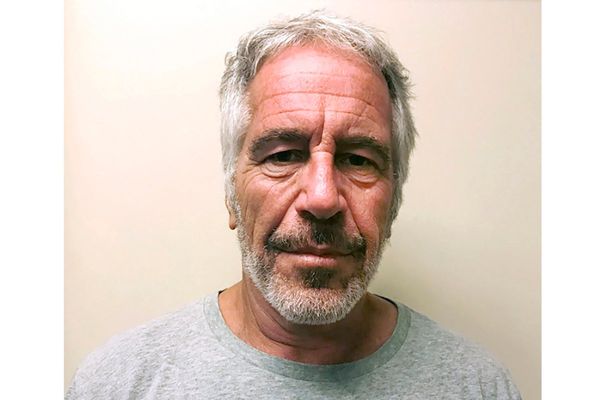LOS ANGELES — Four weeks ago, Mayor Karen Bass' homelessness team found a warm place indoors for Princeton Parker, a 38-year-old living in a tent on L.A.'s Westside.
Parker was delighted by his move to the Hotel Silver Lake at the edge of Silver Lake and Historic Filipinotown. The rooms were large, and his friends from the encampment were close by. "It felt like I had a home," he said.
But that arrangement was upended last week when Bass' Inside Safe operation abruptly moved him and about 20 others to a hotel in downtown L.A. When that location didn't work out, Parker was then sent to a third hotel in Hollywood. He has felt lonely and isolated since then.
"I was extremely excited" to be at the Hotel Silver Lake, the former Pasadena resident said. "And they just took that from me."
The comings and goings at Hotel Silver Lake show some of the logistical challenges facing Bass as she seeks to move 1,000 people indoors through her Inside Safe program by Tuesday, her 100th day in office. Bass expects the city will have housed a total of 4,000 people during that span. (Most of the remaining 3,000 are being helped through initiatives put into motion before Bass took office.)
So far, at least two of the mayor's 13 Inside Safe operations have resulted in unhoused people being shuffled from one hotel to another, and sometimes a third — drawing pointed complaints from homeless advocates.
"The goal of Inside Safe is essentially to get people off the street permanently," said Meggie Kelley, who volunteers with Fairfax Mutual Aid, which provides food and other resources to homeless Angelenos. "Moving them around from place to place is not offering them stability. It takes people away from the community they have."
The situation has also highlighted the lack of temporary housing available to the mayor in some parts of L.A.
Last month, Bass and her Inside Safe team moved 43 people — including Parker — out of homeless encampments on or near 6th Street and Fairfax Avenue. The area is represented by Councilmember Katy Yaroslavsky, who took part in the operation. But because her Westside district doesn't have enough interim housing, those residents were moved into Hotel Silver Lake in the district represented by Councilmember Hugo Soto-Martinez.
Leo Daube, a Yaroslavsky spokesperson, said his boss contacted Soto-Martinez ahead of time about using the hotel. "We did reach out ... to make sure they were OK with that, because it's in their district," he said. "And Hugo graciously agreed."
For many, the stay didn't last long.
Last Monday, Bass' Inside Safe program began transferring about half of the people from 6th and Fairfax out of the Hotel Silver Lake and into other locations — the L.A. Grand Hotel in downtown and the West Inn Hotel in Hollywood. Some objected, saying they did not want to be uprooted.
The next day, a new group of unhoused people was brought into the Hotel Silver Lake, this time from Soto-Martinez's district. On that day, Inside Safe began targeting several locations near Echo Park Lake.
Soto-Martinez promised during last year's campaign that he would take down the fence that surrounds the lake, which went up in 2021 as part of a controversial clearing of a massive homeless encampment. He has assured the park's neighbors that he will work to keep homeless people from moving back into the park. His first town hall on the fence removal took place Thursday, just as the Inside Safe operation in Echo Park was wrapping up.
In an interview, Soto-Martinez said there's no connection between the Echo Park operation, which moved 56 people indoors, and his plan to remove the fence from Echo Park Lake. "We have been working on both of those things independently," he said.
Soto-Martinez declined to say whether his Echo Park Inside Safe operation wound up pushing other people out of the Hotel Silver Lake. That question, he said, should be handled by the mayor.
"Hotels, and where people go into, that is something that the mayor coordinates," he said.
Bass aide Zach Seidl disputed the notion that people were moved out of the Hotel Silver Lake to make way for Soto-Martinez's unhoused residents. The relocation effort, he said, was done to "improve the living conditions of the residents of 6th and Fairfax."
Seidl did not provide additional details. Meanwhile, Bass sounded dismayed by the treatment of the 6th and Fairfax encampment residents.
Bass said encampments are "small communities" that serve as support systems for their inhabitants. Spreading people from the same encampment across three different hotels is "not what I want to see happen," she said.
Bass said she has been trying to move with urgency, getting people off the street even though some aspects of Inside Safe are not fully built out. She said she cannot guarantee the same situation won't happen again — if, for example, her office discovers problems with a particular hotel.
"If we find the need to move people, we will," she said.
Seidl, the mayoral aide, said the Hotel Silver Lake was never intended to be a long-term housing option for the residents from 6th and Fairfax.
Carolyn Shayne Smith, who has been staying at the Hotel Silver Lake, said she received a different message.
Smith, who came from the 6th and Fairfax area last month, said she and other encampment residents were told when they moved that they would be in the hotel for up to a year, or until they were connected with permanent housing. The 53-year-old said that's why she was shocked to hear from an outreach worker that they were being moved to another location after less than a month.
Some residents of the 6th and Fairfax encampment were just getting to know the surrounding neighborhood, and using the Hotel Silver Lake as their return address while ordering IDs, Smith said.
Smith, who worked in interior design until suffering a major health crisis, said she demanded an explanation. An outreach worker responded, she said, by telling her that everyone needed to move out to make way for homeless people arriving from Soto-Martinez's district.
"They said, 'We have to move you guys to another hotel, we'll be here Monday at 9:30 — be packed and ready,'" Smith said.
Smith and several others challenged the move, contacting mutual aid workers and Yaroslavsky's staff, who helped advocate on their behalf. Eighteen people from the 6th and Fairfax encampment ultimately stayed, according to the mayor's office. Smith was among them.
Others did not challenge the move. Parker, for example, boarded the bus to the L.A. Grand last Monday and immediately had misgivings after learning about some of the rules at the facility.
Parker said he and the other new arrivals were told that L.A. Grand residents are barred from having guests, visiting others' rooms or congregating in hallways. "You're like a prisoner all the time," he said.
Parker said he tried the L.A. Grand for one night and then moved out. He attempted without success to return to the Hotel Silver Lake. He is now at the West Inn Hotel in Hollywood, away from his other friends.
Yaroslavsky, asked about the situation at the Hotel Silver Lake, said she is grateful to Bass for her response to the homelessness crisis. She also said her office, the mayor's team and Soto-Martinez's staff worked to address the needs of the unhoused people moved out of her district.
"What matters is that every person that previously lived at 6th and Fairfax still has a roof over their heads and did not fall back into homelessness," she said.
———







